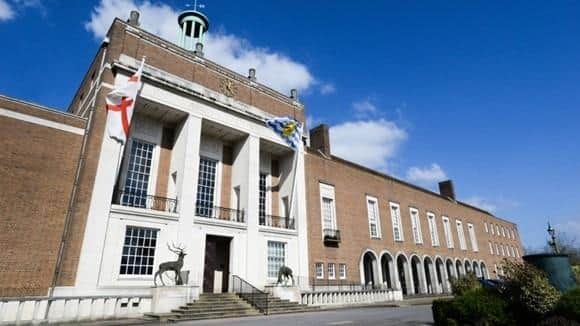Bus franchising would cost up to £174million in Hertfordshire, councillors told
and live on Freeview channel 276
Operating a bus franchising and contracting system across Hertfordshire could run at a loss – and would cost up to £174million to set up – councillors have been told.
Currently, the vast majority of bus services across the county are run commercially – with operators setting routes and the frequency of services.
Advertisement
Advertisement
But a franchising model – like London and Manchester – would allow Hertfordshire County Council, as the local transport authority, to plan a holistic network with integrated ticketing.


It would also allow for cross subsidies across bus services and other modes of transport.
Officers at the county council have been looking at how a franchise approach could operate in Hertfordshire.
And at a meeting of the highways and transport cabinet panel on Wednesday (March 12), it was agreed that a franchise approach ‘would bring benefits and improvements across the bus network in the county’.
Advertisement
Advertisement
But it was also reported that set-up costs could range between £14million and £174million, with the larger sum including a fleet of electric buses.
Annual operating costs – it was estimated – would be around £62million. Income estimates – it was reported – would range between an annual operating deficit of £18million and a profit of £2million.
Presenting the report, director of transport, waste and environment Simon Aries said the reality was that for Hertfordshire at the moment it was not affordable.
He said that from an officer perspective they would be “absolutely in favour of franchising” – pointing to the control of the network it offered.
Advertisement
Advertisement
He suggested that if the council was to move to a franchising model it would be better to go for the ‘big bang’ approach “to make sure it was as successful as it could be”.
But he recommended that further reports were presented in future that could include cheaper alternatives or franchising in specific geographical areas.
The cheaper option presented in the report would use the rolling stock of existing operators rather than the purchase of a new EV fleet.
At the meeting executive member for highways ad transport Cllr Phil Bibby acknowledged that franchising would not be as “cheap and easy” as they had thought.
Advertisement
Advertisement
“I would love to do it,” he said. “But unfortunately practically speaking – financially speaking – it’s not something we can commit to at the moment.
“But it’s something we definitely want to keep in view, because it would be the answer to all our ills and bus transport I am sure and [would] get people back on to buses.
“But it’s not as cheap and easy as we thought.”
At the meeting councillors heard that there were already 35 non-commercial routes in the county where the council specified timetables, routes and types of buses.
Liberal Democrat Cllr Stephen Giles-Medhurst suggested there could be a cheaper route to franchising without an EV fleet.
Advertisement
Advertisement
And he said that getting people back onto the bus network would require a reliable system, with information about services on bus shelters and reasonable fares.
Meanwhile Lib Dem Nigel Taylor suggested it was almost as if the inclusion of the cost of an EV fleet was “designed to inflate the figures”.
And he said he would have liked the report to focus on a franchising model as used in London, where – he said – there are effectively independent operators under contract to Transport for London.
He said that currently bus operators could “do what they like” with no accountability.
Advertisement
Advertisement
“If franchising were in place, even if it wasn’t fully implemented, it would shift the power balance – so that they would have to listen to us and not the other way around,” he said.
He pointed to the need for an information system so residents would know how easy it would be to take a bus or train and an integrated ticket system.
And he said: “I do accept that at the moment there is not the funding for it.
“But I would prefer that you focus on how these points could be elaborated on for future work – and not worry about the cost of an all electric fleet.
Advertisement
Advertisement
“Because those are separate issues from the core question of how do you make public transport work.”
However Cllr Bibby suggested there may be a requirement for at least some electric buses.
“If we are going to go this way, we want to do it properly,” he said.
“And I think we would be expected or obligated to actually have at least some of our fleet as electric buses.
“I appreciate that would be more expensive, but I don’t think it is something we could actually ignore if we did actually control a franchising operation.”